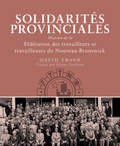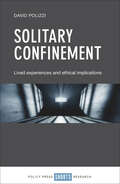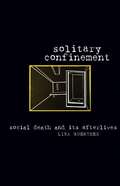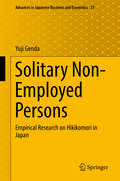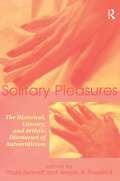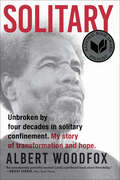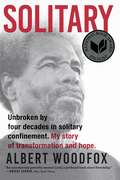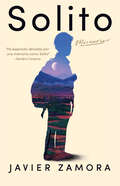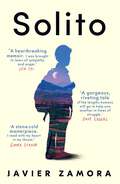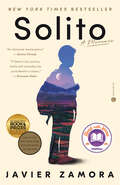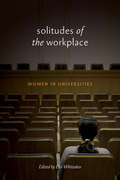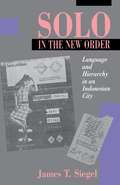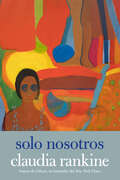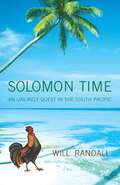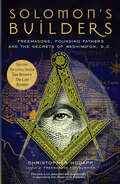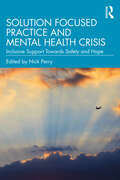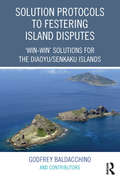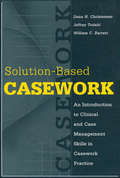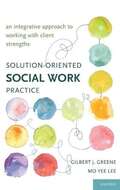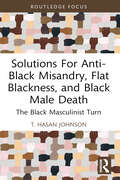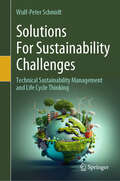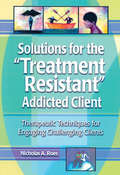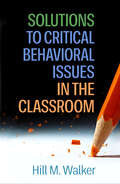- Table View
- List View
Solidarités provinciales: Histoire de la Fédération des travailleurs et travailleuses du Nouveau-Brunswick
by David Frank Réjean OuelletteLa Fédération des travailleurs et travailleuses du Nouveau-Brunswick, fondée en 1913, est la deuxième plus ancienne fédération provinciale du travail au Canada. Son histoire remonte aux premières campagnes en faveur de l’indemnisation des accidents du travail et de la reconnaissance syndicale, et elle se poursuit dans les plus récentes luttes visant à défendre les normes sociales et à protéger les emplois et les droits syndicaux. La Fédération a vu le jour dans la ville portuaire de Saint John et le centre ferroviaire de Moncton, puis elle s’est étendue aux travailleurs des mines et des usines du nord de la province, soutenant la cause des employés du secteur public et des travailleuses, reflétant les réalités de la vie et du travail dans une société bilingue. Puisant dans les archives, les journaux et les expériences des travailleurs et des travailleuses, voici l’histoire inédite de solidarités syndicales provinciales qui ont surmonté les divisions et les revers afin de rehausser le statut des travailleurs et des travailleuses dans la société néo-brunswickoise. Par cette étude pionnière rédigée dans un style clair et puissant, Frank apporte une contribution originale à la compréhension de l’évolution politique, économique et sociale de la province, et il aide à combler le besoin d’éclairer la connaissance que le public a de l’histoire des travailleurs et des syndicats de toutes les régions du Canada.
Solitary Confinement: Lived Experiences and Ethical Implications
by David PolizziWhy is solitary confinement used in today’s world? Does it help the rehabilitation of offenders? And how is policy affected by justification for the use of it? This book is the first to consider the history of solitary confinement and how it is experienced by the individuals undergoing it. Using Merleau-Ponty’s concept of embodied subjectivity, it provides first-hand accounts of the inhumane experience of solitary confinement to provide a better appreciation of the relationship between penal strategy and its effect on human beings. Drawing on his own experiences as a Psychological Specialist in the Pennsylvania Department of Corrections and on those interviewed as part of the Guardian 6x9 project (http://www.theguardian.com/world/ng-interactive/2016/apr/27/6x9-a-virtual-experience-of-solitary-confinement), the author focuses on the phenomenology of solitary confinement to consider what the intentional aspect of this almost uninhabitable type of confinement says about a democratic society that continues to justify its use as a correctional strategy. Aiming to influence policy, the book fills the gap between the practice of solitary confinement and its implications, as well as the social attitudes that uncritically condone its use.
Solitary Confinement: Social Death and Its Afterlives
by Lisa GuentherProlonged solitary confinement has become a widespread and standard practice in U.S. prisons—even though it consistently drives healthy prisoners insane, makes the mentally ill sicker, and, according to the testimony of prisoners, threatens to reduce life to a living death. In this profoundly important and original book, Lisa Guenther examines the death-in-life experience of solitary confinement in America from the early nineteenth century to today’s supermax prisons. Documenting how solitary confinement undermines prisoners’ sense of identity and their ability to understand the world, Guenther demonstrates the real effects of forcibly isolating a person for weeks, months, or years. <p><p> Drawing on the testimony of prisoners and the work of philosophers and social activists from Edmund Husserl and Maurice Merleau-Ponty to Frantz Fanon and Angela Davis, the author defines solitary confinement as a kind of social death. It argues that isolation exposes the relational structure of being by showing what happens when that structure is abused—when prisoners are deprived of the concrete relations with others on which our existence as sense-making creatures depends. Solitary confinement is beyond a form of racial or political violence; it is an assault on being. <p> A searing and unforgettable indictment, Solitary Confinement reveals what the devastation wrought by the torture of solitary confinement tells us about what it means to be human—and why humanity is so often destroyed when we separate prisoners from all other people.
Solitary Confinement: Social Death and Its Afterlives
by Lisa GuentherProlonged solitary confinement has become a widespread and standard practice in U.S. prisons—even though it consistently drives healthy prisoners insane, makes the mentally ill sicker, and, according to the testimony of prisoners, threatens to reduce life to a living death. In this profoundly important and original book, Lisa Guenther examines the death-in-life experience of solitary confinement in America from the early nineteenth century to today&’s supermax prisons. Documenting how solitary confinement undermines prisoners&’ sense of identity and their ability to understand the world, Guenther demonstrates the real effects of forcibly isolating a person for weeks, months, or years.Drawing on the testimony of prisoners and the work of philosophers and social activists from Edmund Husserl and Maurice Merleau-Ponty to Frantz Fanon and Angela Davis, the author defines solitary confinement as a kind of social death. It argues that isolation exposes the relational structure of being by showing what happens when that structure is abused—when prisoners are deprived of the concrete relations with others on which our existence as sense-making creatures depends. Solitary confinement is beyond a form of racial or political violence; it is an assault on being.A searing and unforgettable indictment, Solitary Confinement reveals what the devastation wrought by the torture of solitary confinement tells us about what it means to be human—and why humanity is so often destroyed when we separate prisoners from all other people.
Solitary Non-Employed Persons: Empirical Research on Hikikomori in Japan (Advances in Japanese Business and Economics #23)
by Yuji GendaThis book is devoted to offering a new concept of non-employment caused by social exclusion. Among labor economic studies, it is the first attempt to investigate the conditions of jobless persons who have completely lost opportunities for daily communication with others. The new concept provided by this book is “solitary non-employed persons (SNEP).” SNEP are defined as non-employed persons who are normally entirely alone or do not spend time with people other than their family. According to a detailed time-use survey in Japan, SNEP make up almost 70 % of single, jobless persons aged 20 to 59. The number of SNEP doubled in the 2000s. As a serious issue for non-employment, economists and sociologists have focused on long-term unemployed persons and persons “not in education, employment, or training” (NEET), which include discouraged persons resigning from work. These serious non-employment issues are attributable to and further aggravated by the isolation experienced by the SNEP. Social withdrawal—that is, the hikikomori who stay indoors—is one notable feature of Japanese youth problems in many cases. Large numbers of the middle-aged jobless Japanese also currently shut themselves in their rooms. The objective approach by the SNEP concept enables us to understand the reality of these withdrawn persons who are now growing in number in many countries. A continuous increase in the number of SNEP will cause several difficulties in society and the economy. SNEP will not make their own livings after the deaths of their families, causing social security costs and financial deficits to further accumulate in the efforts to help them. A shortage of an attractive labor force will accelerate in the future due to the expansion of SNEP within the young and middle-aged populations. This book proposes appropriate policies to prevent an increase in SNEP in such a way as to generate skilled professionals, as well as to reach out and support them. It will contribute to developing studies for jobless people closely involved in social exclusion, and to finding universal and effective solutions for their inclusion.
Solitary Pleasures: The Historical, Literary and Artistic Discourses of Autoeroticism
by Paula Bennett Vernon A. Rosario IISolitary Pleasures is the first anthology to address masturbation, exploring both the history and artistic representation of autoeroticism. Masturbation today enjoys a highly equivocal and contradictory status among cultural discourses relating to sexuality. On the one hand, it is the subject of much popular treatment, especially in sexual self-help books, advice columns, and in pop culture--for example, Madonna's "Like a Virgin" performance, a recent Roseanne episode, and David Russell's movie Spanking the Monkey. On the other hand, masturbation is still a taboo subject for most people in everyday conversation. Perhaps more surprising, it has been largely dismissed by academics as a trivial, humorous topic and the "history of a delusion."It was not until the eighteenth century that "onanism" was portrayed as a morbid act of epidemic proportions that produced pox, hair loss, blindness, insanity, impotence and a horrible. Its prevention and treatment warranted diverse and often cruel measures: surveillance, diets, drugs, corsets, electrical alarms, urethral cauterization, clitoridectomy, and labial sewing. This literature's apocalyptic warnings about the personal and social morbidity of "pollution-by-the-hand" are largely unknown to most people today, but the ghostly echoes of these admonitions still inform and preserve the present taboo of the subject.Why did this apparently innocuous activity become so overpoweringly stigmatized? Why was the eradication of masturbation one of the most important goals of 19th century public hygiene? Why, even after the "sexual revolution," is masturbation still shrouded in shame?
Solitary: Unbroken By Four Decades In Solitary Confinement. My Story Of Transformation And Hope
by Albert Woodfox“An uncommonly powerful memoir about four decades in confinement . . . A profound book about friendship [and] solitary confinement in the United States.” —New York TimesFinalist for the Pulitzer Prize and the National Book AwardSolitary is the unforgettable life story of a man who served more than four decades in solitary confinement—in a 6-foot by 9-foot cell, twenty-three hours a day, in Louisiana’s notorious Angola prison—all for a crime he did not commit. That Albert Woodfox survived at all was a feat of extraordinary endurance. That he emerged whole from his odyssey within America’s prison and judicial systems is a triumph of the human spirit.While behind bars in his early twenties, Albert was inspired to join the Black Panther Party because of its social commitment and code of living. He was serving a fifty-year sentence in Angola for armed robbery when, on April 17, 1972, a white guard was killed. Albert and another member of the Panthers were accused of the crime and immediately put in solitary confinement. Without a shred of evidence against them, their trial was a sham of justice. Decades passed before Albert was finally released in February 2016.Sustained by the solidarity of two fellow Panthers, Albert turned his anger into activism and resistance. The Angola 3, as they became known, resolved never to be broken by the corruption that effectively held them for decades as political prisoners. Solitary is a clarion call to reform the inhumanity of solitary confinement in the United States and around the world.
Solitary: Unbroken by Four Decades in Solitary Confinement. My Story of Transformation and Hope
by Albert WoodfoxSolitary is the unforgettable life story of a man who served more than four decades in solitary confinement in a 6-foot by 9-foot cell, 23 hours a day, in notorious Angola prison in Louisiana, all for a crime he did not commit. That Albert Woodfox survived was, in itself, a feat of extraordinary endurance against the violence and deprivation he faced daily. That he was able to emerge whole from his odyssey within America’s prison and judicial systems is a triumph of the human spirit, and makes his book a clarion call to reform the inhumanity of solitary confinement in the U.S. and around the world. Arrested often as a teenager in New Orleans, inspired behind bars in his early twenties to join the Black Panther Party because of its social commitment and code of living, Albert was serving a 50-year sentence in Angola for armed robbery when on April 17, 1972, a white guard was killed. Albert and another member of the Panthers were accused of the crime and immediately put in solitary confinement by the warden. Without a shred of actual evidence against them, their trial was a sham of justice that gave them life sentences in solitary. Decades passed before Albert gained a lawyer of consequence; even so, sixteen more years and multiple appeals were needed before he was finally released in February 2016. Remarkably self-aware that anger or bitterness would have destroyed him in solitary confinement, sustained by the shared solidarity of two fellow Panthers, Albert turned his anger into activism and resistance. The Angola 3, as they became known, resolved never to be broken by the grinding inhumanity and corruption that effectively held them for decades as political prisoners. He survived to give us Solitary, a chronicle of rare power and humanity that proves the better spirits of our nature can thrive against any odds.
Solito
by Javier Zamora«En esta conmovedora autobiografía que no podrás soltar, un joven poeta relata la inolvidable historia de su desgarradora migración hacia Estados Unidos desde El Salvador a los nueve años, considerada 'el viaje mítico de nuestra era'.» —Sandra Cisneros La aventura de Javier es una travesía de tres mil millas desde su pequeño pueblo en El Salvador, a través de Guatemala y México, hacia la frontera de Estados Unidos. Dejará atrás a sus queridos abuelos y su tía para reunirse con una madre que se fue cuatro años atrás y con un padre al que prácticamente no recuerda. Al viajar solo, a excepción de un grupo de extraños y un coyote contratado para guiarlos a salvo, Javier debía tardar solo dos semanas en llegar. A los nueve años, todo lo que Javier puede imaginar es correr a los brazos de sus padres, acurrucarse en la cama entre ellos y vivir bajo el mismo techo otra vez. No puede prever los peligrosos trayectos en bote, las interminables caminatas por el desierto, las armas apuntándole, los arrestos y los engaños que le esperan. Tampoco sabe que esas dos semanas se alargarán hasta dos meses y le cambiarán la vida, junto a un grupo de extraños que acabará por cobijarlo como una familia improvisada. Una autobiografía tan apasionante como emotiva, Solito no solo nos ofrece un recuento íntimo e inmediato de un viaje sinuoso y casi imposible, sino la milagrosa bondad y el amor que se entrega en los momentos más inesperados. Solito es la historia de Javier, pero es también la historia de millones más que no tuvieron otra opción más que irse de casa.
Solito: A Memoir
by Javier Zamora'Heartbreaking… A rare, eye-opening rendition of the brutal reality of border-crossing.' Lea Ypi &‘If there&’s any justice, Solito will someday be considered a classic.&’ Rumaan Alam Young Javier dreams of eating orange sherbet ice cream with his parents in the United States. For this to happen, he must embark on a three-thousand-mile journey alone. It should last only two weeks. But it takes seven. In limbo, Javier learns what people will do to survive – and what they will forfeit to save someone else. This is a memoir of perilous boat trips, relentless desert treks, and pointed guns. But it is also a story of tasting tacos for the first time, of who passes you their water jug in the crippling heat, and of longing to be in your mother&’s arms.
Solito: A Memoir
by Javier ZamoraNew York Times Bestseller • Read With Jenna Book Club Pick as seen on Today • Winner of the Los Angeles Times Christopher Isherwood Prize for Autobiography • Winner of the American Library Association Alex Award • A Kirkus Reviews Best Nonfiction Book of the CenturyA young poet tells the inspiring story of his migration from El Salvador to the United States at the age of nine in this &“gripping memoir&” (NPR) of bravery, hope, and finding family. Finalist for the PEN/John Kenneth Galbraith Award for Nonfiction • One of the New York Public Library&’s Ten Best Books of the Year Longlisted for the Andrew Carnegie Medal for Excellence and the PEN/Open Book Award&“I read Solito with my heart in my throat and did not burst into tears until the last sentence. What a person, what a writer, what a book.&”—Emma Straub &“A riveting tale of perseverance and the lengths humans will go to help each other in times of struggle.&”—Dave EggersONE OF THE BEST BOOKS OF THE YEAR: The New York Times Book Review, NPR, The Washington Post, San Francisco Chronicle, Vulture, She Reads, Kirkus ReviewsTrip. My parents started using that word about a year ago—&“one day, you&’ll take a trip to be with us. Like an adventure.&” Javier Zamora&’s adventure is a three-thousand-mile journey from his small town in El Salvador, through Guatemala and Mexico, and across the U.S. border. He will leave behind his beloved aunt and grandparents to reunite with a mother who left four years ago and a father he barely remembers. Traveling alone amid a group of strangers and a &“coyote&” hired to lead them to safety, Javier expects his trip to last two short weeks.At nine years old, all Javier can imagine is rushing into his parents&’ arms, snuggling in bed between them, and living under the same roof again. He cannot foresee the perilous boat trips, relentless desert treks, pointed guns, arrests and deceptions that await him; nor can he know that those two weeks will expand into two life-altering months alongside fellow migrants who will come to encircle him like an unexpected family.A memoir as gripping as it is moving, Solito provides an immediate and intimate account not only of a treacherous and near-impossible journey, but also of the miraculous kindness and love delivered at the most unexpected moments. Solito is Javier Zamora&’s story, but it&’s also the story of millions of others who had no choice but to leave home.
Solitudes of the Workplace
by Elvi WhittakerSolitudes of the Workplace focuses on experiences of marginalization, uncertainty and segregation created by the hierarchical structures of categories in universities and by gendered identities. Studying a wider range of women's roles in universities than prior research, the experiences of support staff, senior administrators, researchers, non-academic administrators, and contract teachers are added to those of faculty and students. The essays show how attempts to introduce new knowledge are manoeuvered and the resistance this process can encounter, as well as the ways in which institutional policies can blur and change identities. Addressing longstanding issues such as the entanglement of gender and the assessment of merit, attention is also given to how new identities are claimed and successfully projected. Essays presenting workers' points of view reveal the confusion that occurs when official policy and everyday knowledge conflict, when processes like tenure and other status changes create troublesome realities, and when it becomes routine to experience status denigration. Within the social order of the university and its existing boundaries, gender issues of past decades sometimes surface, but all too often remain an unspoken presence. Solitudes of the Workplace is a revealing look at the isolating experiences and inequities inherent in these institutional environments.
Solitudes of the Workplace: Women in Universities
by Elvi WhittakerSolitudes of the Workplace focuses on experiences of marginalization, uncertainty and segregation created by the hierarchical structures of categories in universities and by gendered identities. Studying a wider range of women’s roles in universities than prior research, the experiences of support staff, senior administrators, researchers, non-academic administrators, and contract teachers are added to those of faculty and students. The essays show how attempts to introduce new knowledge are manoeuvered and the resistance this process can encounter, as well as the ways in which institutional policies can blur and change identities. Addressing longstanding issues such as the entanglement of gender and the assessment of merit, attention is also given to how new identities are claimed and successfully projected. Essays presenting workers' points of view reveal the confusion that occurs when official policy and everyday knowledge conflict, when processes like tenure and other status changes create troublesome realities, and when it becomes routine to experience status denigration. Within the social order of the university and its existing boundaries, gender issues of past decades sometimes surface, but all too often remain an unspoken presence. Solitudes of the Workplace is a revealing look at the isolating experiences and inequities inherent in these institutional environments.
Solo in the New Order: Language and Hierarchy in an Indonesian City
by James T. SiegelIn this brilliant ethnography of contemporary Java, James Siegel analyzes how language operates to organize and to order an Indonesian people. Despite the imposition of Suharto's New Order, the inhabitants of the city of Solo continue to adhere to their own complex ideas of deference and hierarchy through translation between high and low Javanese speech styles. Siegel uncovers moments when translation fails and compulsive mimicry ensues. His examination of communication and its failures also exposes the ways a culture reconstitutes itself. It leads to insights into the "accidents" that precede the formulations of culture as such.
Solo nosotros
by Claudia RankineThe Spanish edition of Claudia Rankine&’s (Citizen) new, acclaimed, genre-bending reflection on whiteness in America. &“A skyscraper in the literature on racism.&” —Christian Science Monitor &“Rankine [is] helping America understand itself, one conversation at a time.&” —Associated Press NAMED A BEST BOOK OF 2020 by The New York Times, Time Magazine, NPR, Esquire, The Guardian, O Magazine, Ms. Magazine, Star Tribune, St. Louis Post Dispatch, Christian Science Monitor, Kirkus Reviews, and Publishers Weekly As everyday white supremacy becomes increasingly vocalized with no clear answers at hand, how best might we approach one another? Claudia Rankine, without telling us what to do, urges us to begin the discussions that might open pathways through this divisive and stuck moment in American history. Just Us is an invitation to discover what it takes to stay in the room together, even and especially in breaching the silence, guilt, and violence that follow direct addresses of whiteness. This brilliant arrangement of essays, poems, and images is Rankine&’s most intimate work, less interested in being right than in being true, being together.
Solomon Time: An Unlikely Quest in the South Pacific
by Will RandallWho hasn't fantasized about dismantling his or her hassled, wired-up life for a simpler existence? Yet who among us has the will and opportunity to do it? The answer, of course, is very few.Will Randall, a young English schoolmaster, had such a chance -- and took it. He uprooted his conventional First World life and let himself be blown to one of the farthest and most beautiful corners of the earth, the Solomon Islands of the South Pacific. In the entertaining tradition of Bill Bryson's In a Sunburned Country, this is the story of Solomon Time.From the first, it's an improbable journey. In a chance encounter on a rugby field, Randall meets a doddering old man known as "the Commander," who has retired to England after running a cocoa plantation in the South Pacific for thirty years. Six months later, the Commander dies and his will is read: he wants someone to travel to his beloved, long-missed island -- where his plantation has fallen into ruin -- and devise a way for the natives to support themselves. If successful, they might avoid poverty, build a new school, and even fend off the greedy developers circling their peaceful waters.It's a mission of noblesse oblige, yet possibly a fool's errand, too. Randall agrees to go.Spread across the Tropic of Capricorn, the Solomon Islands are not so much the Pacific archipelago that time forgot as the one that forgets time. Randall's new home is Mendali, a fishing village so remote it can be reached only by motorized canoe. But the people of the village, some with cheeks engraved with a rising sun, are welcoming, for they remember the Commander kindly, and still practice a pagan Anglicanism in a church he built for them in 1956. They sleep in houses made of leaves and live on fish of every sort, mud crabs, yams, ngali nuts, even the honeycomb of termites.Randall decides that the villagers could raise chickens, and they greet the idea with enthusiasm. But finding live chicken eggs in their watery world proves wildly difficult, and Randall must chase after the eggs over shark-infested seas and through jungles where strange characters reside, including a one-eyed dwarf and a tattooed lady.One couldn't imagine a better man than Will Randall to help the people of Mendali meet the twenty-first century on their own terms. But will he succeed?Solomon Time is a moving and witty account of one man's accidental adventure in paradise and is certain to enchant explorers and armchair travelers alike.
Solomon's Builders: Freemasons, Founding Fathers and the Secrets of Washington D.C. (Reference Ser.)
by Christopher I HodappUnearth the fascinating history of how the Freemasons and Founding Fathers sowed the seeds of a new nation amid the collapse of the British colonies.Step back in time to the birth of a revolutionary new republic and discover how the utopian ideals of a visionary secret society laid the foundation for the most powerful nation on earth. Follow George Washington, Benjamin Franklin and other Founding Fathers as they transform the democratic principles of their Masonic lodges into a radical new nation.Solomon’s Builders unravels history from myth as it takes you on a Freemason’s tour of Washington, D.C. It reveals the evidence of Masonic influence during the construction of America and its new capital, including clues hidden in plain sight:•Masonic connections to national monuments•Puzzling pentagrams and symbolism in city streets•The mysterious temples of the “Widow’s Sons”Solomon’s Builders relates the true stories of these visionary founders, and the fascinating meaning behind the cryptic codes, enigmatic symbols and intriguing architecture that is reputedly the basis for the sequel to The Da Vinci Code, Dan Brown’s novel The Lost Symbol.“Well written account of the philosophical thinking that led to the formation of a common man’s democracy. . . . The reference book that teachers need to use in their American History classes.” —Karl Grube, Ph.D., Bonisteel Masonic Library, Ann Arbor, MI“One of the better books that I have seen that credits Freemasonry where credit is due.” —Thomas W. Jackson, The Northern Light Magazine“What distinguishes Solomon’s Builders from the good and bad, malicious and benevolent, is its honesty, humor and clarity.” —Mark A. Tabbert, author of American Freemasons“An academically written book on the early days of American Freemasonry without the pretentious trappings of most scholarly treatments on the subject.” —Stephen Dafoe, author of Nobly Born
Solution Focused Practice and Mental Health Crisis: Inclusive Support Towards Safety and Hope
by Nick PerryThis book provides an interdisciplinary understanding of Solution Focused Practice (SFP) and how to use the approach when working with people in mental health crisis.The book takes a whole systems perspective, presenting SFP as a "common language" between different professional cultures and making the case for its use across all environments of mental health crisis care. The chapters explore the uniqueness of SFP, chart its history in the UK, and outline ways in which SFP can optimise client agency as well as positively impact worker wellbeing. Anonymised accounts of professional experiences are included throughout to give readers an understanding of how Solution Focused questions can change the balance of power within practice situations and provide inclusive support towards safety and hope.This will assist a wide range of professionals involved in and working alongside the mental health system including psychiatrists, nurses, social workers, psychologists, therapists, counsellors, and other support staff. We hope it will also be useful for service users.
Solution Protocols to Festering Island Disputes: ‘Win-Win' Solutions for the Diaoyu / Senkaku Islands
by Godfrey BaldacchinoSince the coming into force of the United Nations Law of the Sea, states have been targeting outlying islands to expand their exclusive economic zones, simultaneously stirring up strident nationalism when such plans clash with those of neighbouring states. No such actions have brought the world closer to the brink of war than the ongoing face-off between China and Japan over the Diaoyu/Senkaku islands, an uninhabited archipelago in the East China Sea. In this timely and original book, Godfrey Baldacchino provides a detailed exploration of seven tried and tested solution protocols that have led to innovative 'win-win' solutions to island disputes over the last four centuries. A closer look at the circumstances and processes that brought contending regional powers to an honourable, even mutually advantageous, settlement over islands provides a convincing and original argument as to why the conflict over the Diaoyu/Senkaku islands need not conclude in a ‘zero-sum’ or 'winner takes all' solution, as is the likely outcome of both open conflict and international arbitration. The book will be of interest to scholars and practitioners concerned with the festering Diaoyu/Senkaku dispute, as well as students, scholars and policy specialists in geography, geopolitics, international relations, conflict studies, island studies, Asian studies and history.
Solution-based Casework: An Introduction to Clinical and Case Management Skills in Casework Practice
by William C. BarrettSolution-based casework is an approach to assessment, case planning, and case management that combines what we know from clinical social work with what we value about sound social work practice. It is grounded in family-centered social work and draws from clinical approaches within social work and mental health. By integrating problem- and solution-focused approaches that form the clinical and social work traditions, treatment partnerships are more easily formed between family, caseworker, and service provider. Solution-Based Casework is a skill-based, practice-oriented text that provides the specific guidance that students and new practitioners need in order to make sense quickly of the complex tasks of assessment and case planning in child welfare. The book flows out of a long practice experience, and was developed in consultation with workers and supervisors who were attempting to remedy problems viewed as contributing to recurrent abuse and neglect. It seeks to end adversarial relationships in casework and advocates case plans based on specific outcome skills rather than on those written with vague outcome goals measuring attendance in counseling. It serves as a common conceptual framework for integrating disparate segments of a response network, thereby allowing all providers in a therapeutic system to work toward common goals.The text is divided into three sections. In Section I the conceptual history and theoretical foundations of solution-based casework are presented so that the reader can place this approach to casework within the ongoing professional conversation about what constitutes sound practice. Section II addresses issues of assessment and case planning. Section III focuses on case management issues and how treatment team members experience a solution-based casework approach.
Solution-oriented Social Work Practice: An Integrative Approach To Working With Client Strengths
by Mo Yee Lee Gilbert J. GreeneToo often in practice, there is a tendency to pathologize clients, requiring a diagnosis as part of the helping relationship. Suppose, however, that most of the client problems that social workers encounter have more to do with the vagaries of life and not with what clients are doing wrong. This powerful idea is the philosophy behind the strengths-based approaches to social work. This groundbreaking practice handbook takes this concept one step further, combining the different strengths-based approaches into an overarching model of solution-oriented social work for greater impact. The strengths perspective emphasizes client strengths, goal-setting, and a shared definition of positive outcome. Solution-focused therapy approaches ongoing problems when they have temporarily abated, amplifying exceptions as solutions. This natural but rarely explored pairing is one component in the challenging and effective practice framework presented here by the authors, two seasoned practitioners with over 50 years of combined experience. By integrating the most useful aspects of the major approaches, a step-by-step plan for action emerges. With this text in hand, you will: - Integrate elements from the strengths perspective, solution-focused therapy, narrative therapy, and the strategic therapy of the Mental Research Institute (the MRI approach) into an effective and eclectic framework - Build and practice your skills using case examples, transcripts, and practical advice - Equip yourself with the tools you need to emphasize clients' strengths - Challenge the diagnosis-first medical model of behavioral health care - Collaborate with clients to get past thinking (first-order change), and more to acting "outside the box" (second-order change) - Learn to work with a wide variety of clients, including individuals, groups, and families; involuntary clients; clients with severe mental illness; and clients in crisis For any student or practitioner interested in working with clients towards collaborative and empowering change, this is the essential text.
Solutions For Anti-Black Misandry, Flat Blackness, and Black Male Death: The Black Masculinist Turn (Leading Conversations on Black Sexualities and Identities)
by T. Hasan JohnsonThis book deconstructs stereotypes about Black men through the exploration of their vulnerability, drawing attention to their demographic-specific issues and needs that are so rarely articulated. Since the Black Power era, many Black men have responded with a Black identity affirming sensibility that sought to advance the cause of Black people. However, Black males have a need for race and gender-specific vocabulary that explains their experience with specificity, including concepts such as Black Masculinism, anti-Black misandry, and Black Andromortality, which seek to explain the experiences of Black males from the context of their lived experiences. Drawing upon empirical data, this volume offers policy solutions that challenge the institutional prejudices against Black males and the disproportionately high rates of death they face. Solutions are proposed to the outlined challenges and chapters span topics such as social and family-based solutions, health, small business support, law, and policy. This book will be essential reading for researchers, professionals, and anyone interested in masculinity, gender studies, and Black Male Studies.
Solutions For Sustainability Challenges: Technical Sustainability Management and Life Cycle Thinking
by Wulf-Peter SchmidtThe book is intended as a primary resource for Chief Sustainability Officers (CSOs), all professionals with interest in sustainability as well as sustainability courses at CBS International Business School and other universities. It starts by reviewing the challenges of sustainability (environmental, social, economic, and governance). The basics of life cycle thinking are explained, looking at Life Cycle Assessment/LCA, Life Cycle Costing/LCC, Social LCAs, and Life Cycle Management. These are applied to sustainable strategy development, sustainable product development, sustainable supply chain management and logistics, sustainable production, sustainable consumption, circular economy, sustainable digitalization, sustainable finance, sustainable employee relations, sustainable advocacy, law and policymaking, etc.—to show how each person in each profession and role can act sustainably and how to democratize sustainability.
Solutions for the Treatment Resistant Addicted Client: Therapeutic Techniques for Engaging Challenging Clients
by Nicholas A. RoesHelp addicts to better their lives, even though they oppose treatment!This useful volume, the result of more than ten years of work in researching and refining the techniques most likely to lead to positive client outcomes, offers field-tested methods for dealing with the most challenging addicted client types. These include hopeless clients, clients considered to be in denial, and those who are in treatment not because they desire it, but because of a mandate from an outside authority. The techniques you'll find in Solutions for the “Treatment-Resistant” Addicted Client have proven to be successful with even the most difficult clients.The techniques you will learn in this book avoid generating resistance on the part of the client and are easily integrated into any treatment model. You'll also find case studies, practice worksheets, and suggestions for therapeutic tasks to assign to your clients.Solutions for the “Treatment-Resistant” Addicted Client will teach you:why treating even the most challenging clients with respect is vital to successful therapywhy the concept of the client's “treatment readiness” is a myth; it is you, the therapist, who must be “ready” for the most challenging client!how to give your therapeutic message greater impact and break out of unproductive patterns of relating to your clientsAnd the book's final section, presented in Q&A format, addresses:practical applications of the techniques discussedtheoretical frameworks for the interventions suggestedethical concerns relating to dealing with clients who don't want treatmentAlcohol and drug counselors, probation/parole officers, social workers, and other mental health professionals who work with addicted clients will find this book an invaluable aid in their work. Students preparing to enter these careers, as well as those preparing for certification as alcohol or drug abuse counselors, also need the information found here. Solutions for the “Treatment-Resistant” Addicted Client is must reading for anyone dealing with this extraordinarily difficult population.
Solutions to Critical Behavioral Issues in the Classroom
by Hill M. WalkerThis highly practical reference is organized around the problem behaviors that K–6 teachers see as the greatest barriers to student success--and the positive behaviors they value the most. Of particular value to educators, the book matches proven intervention techniques to specific target behaviors. Hill M. Walker presents exemplary strategies for managing such classroom challenges as defiance, low motivation, and aggression. He also reviews ways to build all students' skills for following directions, staying on task, coping with frustration, getting along with peers, and more. The book includes illustrative case examples and a section that clearly explains key principles of behavior management. Reproducible handouts and forms can be downloaded and printed in a convenient 8 1/2" x 11" size.
